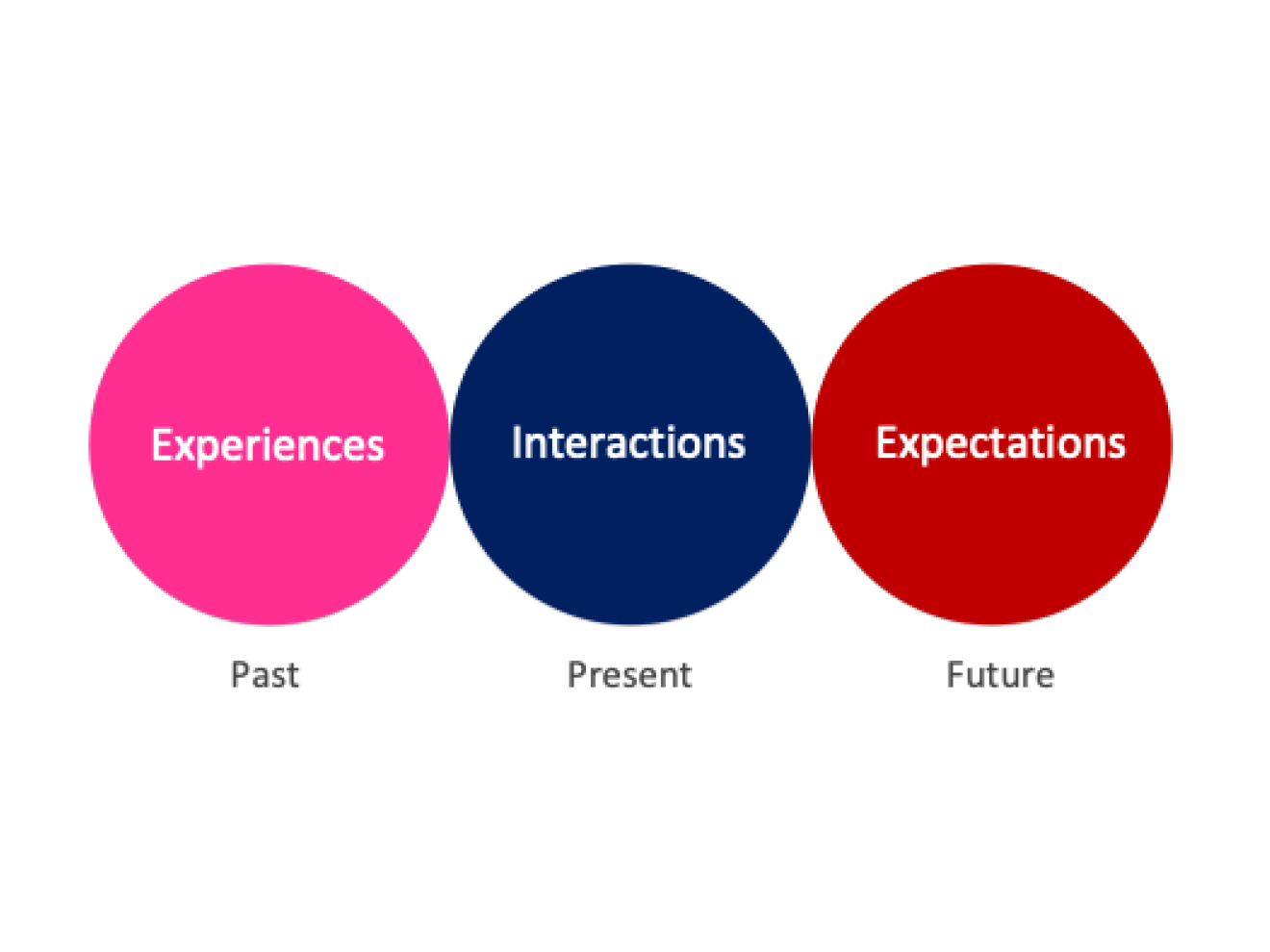Improving Relationships at Work and Beyond

Have you ever thought about what makes a relationship work or not work? This short blog article helps you understand how your perceptions of the past, the present and the future can alter the course of a relationship.
To start, please consider a relationship that you have with someone. This can be someone either at work or in your personal life. This can be a positive relationship, a neutral relationship or a negative relationship.
(If you would prefer to watch or listen to this blog instead of reading, please view this video.)
Now consider the past
Ask yourself to reflect on what has happened between you and the other person to form your opinion of the relationship that you now have. For example, do you share past positive experiences? Or maybe you have not seen eye to eye? Perhaps someone has helped you? Or perhaps you feel you have been let down?
Whatever the past experience has been, this perception is likely to be carried forward into your next dealing with this person. Your past experiences will influence your mood and how you are likely to interact with that person at your next meeting.
Now consider the present
Continue to keep the person and the relationship you have in your mind. Imagine that you now have a meeting with this person. This meeting can be in person, online or maybe via telephone or even email.
Now consider how your interactions will be influenced by the past – i.e., what has previously happened between the two of you. Will your mood be open and welcoming? Or will your approach be defensive, perhaps even combative? For a species like ours that is hard-wired to survive, it’s not surprising that we may naturally opt for this fight of flight approach.
The important thing to remember is that we have choices and that our interactions are based our choices. Do we always need to choose our behaviours that are based on the past? What if we made a choice to put the past to one side or at least begin to understand the intentions and motivations as to why the person behaved as they did?
Interactions are behaviours such as listening, showing
and influencing in way that shows
flexibility of influencing style
Depending on past experiences, these choices may not be the ones that we’d naturally choose.
Behaviour breeds behaviour. So, what would happen if, during this meeting, you adopted different behaviours which are based on the now rather than the past?
For example, how would your relationship develop in the future if you became curious and looked to understand the past, in order to help reshape the future of the relationship? How would it be if you look to understand the other person’s current motivations and intentions for what they want to achieve and why? What would the impact be on the other person if you chose to behave this way and how would their behaviour change towards yourself?
Interactions do not only have to reflect past experiences. If different choices are made, interactions can also shape the mood of the present meeting and help determine the future of the relationship. Being aware of what is going on for us as well as realising what is going on for the other person in an interaction is very much what emotional intelligence is all about. Making these cognitive, rational choices is evidence of paying attention to our emotions, rather than being controlled by them.
Now look ahead to the future
Depending on the interactions within a meeting, the relationship can take a positive step forward or take a turn for the worse. Of course, this can be easier said than done as the other person needs to respond in a favourable way. It takes two to tango.
However, and as previously said, behaviour breeds behaviour. It takes someone to take the lead, offer the olive branch and maybe even bury the hatchet. Trench warfare offers no sustainable, long-term solution.
Whichever cliché is used, re-shaping a relationship takes courage as well as curiosity. The choice to remain poles apart is often easier. Yet in a world where teamwork and relationships often define success, can we afford not to take the leap? Seeing relationships as past, present and future is a great way to start.
Paul Beesley
Director & senior consultant, Beyond Theory
For our options on increasing self-awareness and improving teamwork please visit here.

